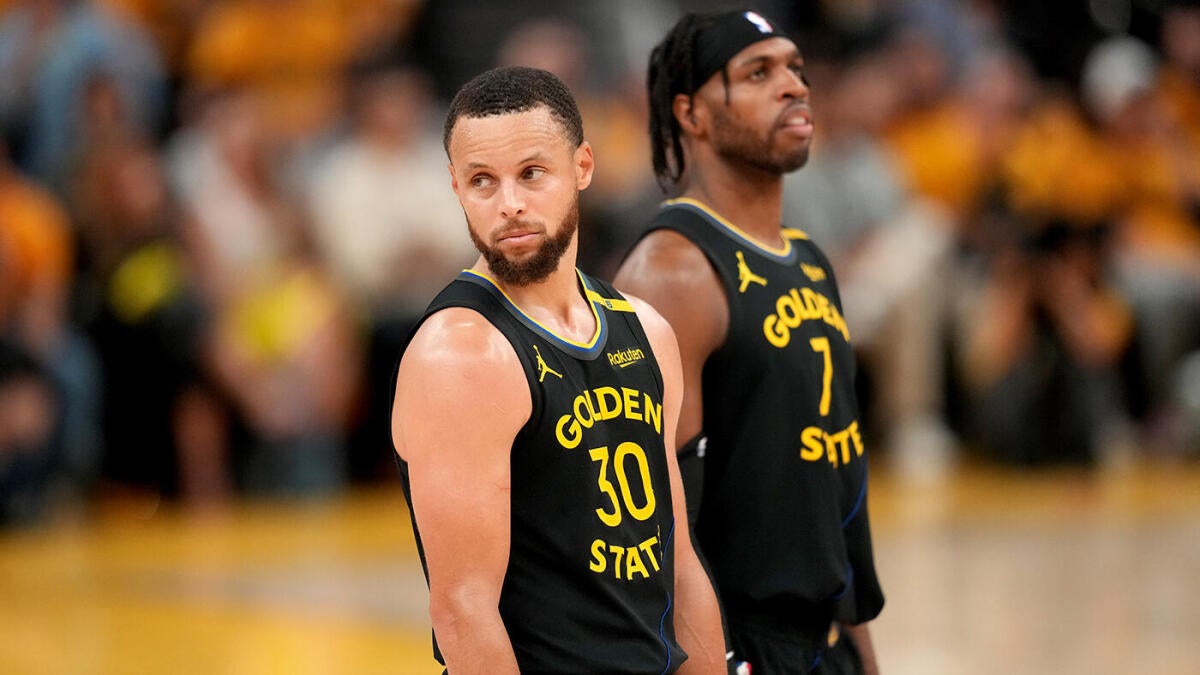The Golden State Warriors’ Precarious 3-1 Lead: A High-Stakes Balancing Act
Introduction
In the high-pressure theater of the NBA playoffs, few scenarios are as tantalizing—and treacherous—as a 3-1 series lead. The Golden State Warriors find themselves in this exact position against the Houston Rockets, a situation that should inspire confidence but instead carries the weight of history, psychological tension, and strategic vulnerabilities. While the Warriors have the upper hand statistically, the Rockets’ resilience and tactical adjustments have turned this series into a gripping battle of wills. This analysis explores the Warriors’ precarious advantage, the Rockets’ countermeasures, and the pivotal factors that could decide whether Golden State advances or Houston stages a historic comeback.
The Psychological Burden of History
The Ghost of 2016 Looms Large
A 3-1 lead is statistically dominant—only 13 teams in NBA history have overcome such a deficit. Yet, for the Warriors, this advantage is shadowed by their own infamous collapse in the 2016 Finals against the Cleveland Cavaliers. That memory lingers, adding an unspoken pressure to close out the series decisively. The Warriors’ core players, including Stephen Curry and Draymond Green, were part of that heartbreak, and the Rockets are well aware of the mental toll such history can take.
Houston’s Relentless Mindset
The Rockets, meanwhile, have embraced the underdog role with a fighter’s mentality. Their Game 5 and 6 victories weren’t just about execution; they were statements of intent. By forcing a Game 7, Houston has shifted the psychological momentum. Coach Mike D’Antoni’s emphasis on reclaiming home-court advantage has galvanized his squad, and players like James Harden have thrived under the “backs against the wall” narrative. The longer this series stretches, the more the Warriors’ early lead feels like a distant memory.
Houston’s Strategic Edge
Offensive Firepower and Adaptability
The Rockets’ offense, stagnant in the first four games (averaging just 98 points), exploded in Games 5 and 6. Their ability to adjust—whether through Harden’s isolation brilliance, Eric Gordon’s perimeter shooting, or Clint Capela’s rim runs—has kept the Warriors’ defense guessing. Houston’s spacing and pace have disrupted Golden State’s switching schemes, creating mismatches and open threes.
Defensive Disruption: Traps and Turnovers
Perhaps the most surprising weapon in Houston’s arsenal has been their trapping zone defense. In Game 5, they forced five first-quarter turnovers, converting them into easy transition buckets. This aggressive scheme has flustered the Warriors’ ball handlers, particularly Curry, who has uncharacteristically coughed up the ball in critical moments. Houston’s ability to turn defense into offense has been a series-altering development.
The Warriors’ Path to Survival
Star Power vs. Supporting Cast
The Warriors’ stars have delivered—Curry’s shooting, Kevin Durant’s scoring, and Green’s playmaking have kept them afloat. But their bench, a perennial strength, has been inconsistent. Role players like Andre Iguodala and Shaun Livingston must provide stability, especially when Houston’s defense locks in on the “Hamptons Five.” If Golden State’s secondary unit falters, the Rockets’ depth could become a decisive factor.
Limiting Self-Inflicted Wounds
Steve Kerr has repeatedly stressed reducing turnovers and defensive lapses. The Warriors’ 18 turnovers in Game 6 were catastrophic, fueling Houston’s 14-1 fourth-quarter run. Cleaner execution, particularly in late-game situations, is non-negotiable. The Rockets thrive in chaos; the Warriors must impose order.
The Turning Points
Game 5: Houston’s Statement Win
The Rockets’ 25-21 first-quarter lead in Game 5 set the tone. Their offensive rebounds (four in the opening period) and relentless defense exposed Golden State’s complacency. By the time the Warriors rallied, Houston had already built an insurmountable momentum, culminating in a 131-116 rout.
Game 6: The Collapse
The Warriors led 87-85 late in the third quarter of Game 6—then disaster struck. Houston’s 14-1 run, fueled by transition threes and defensive stops, sealed the game. Golden State’s fatigue was palpable; their offense devolved into isolation-heavy stagnation. The Rockets, meanwhile, played with the urgency of a team with nothing to lose.
Conclusion: The Brink of Glory or Disaster
A Legacy-Defining Moment
For the Warriors, this is more than a series—it’s a test of championship mettle. Closing out Houston would reaffirm their dominance; a collapse would etch another painful chapter in their playoff history. The Rockets, meanwhile, are playing for validation. A comeback would immortalize this team alongside the greatest playoff resurgences.
The Deciding Factors
The stage is set for a classic. Whether the Warriors survive or the Rockets complete their revenge, this series will be remembered for its intensity, adjustments, and high-stakes drama. One team will advance; the other will face an offseason of haunting questions. In the NBA playoffs, there’s no middle ground.











